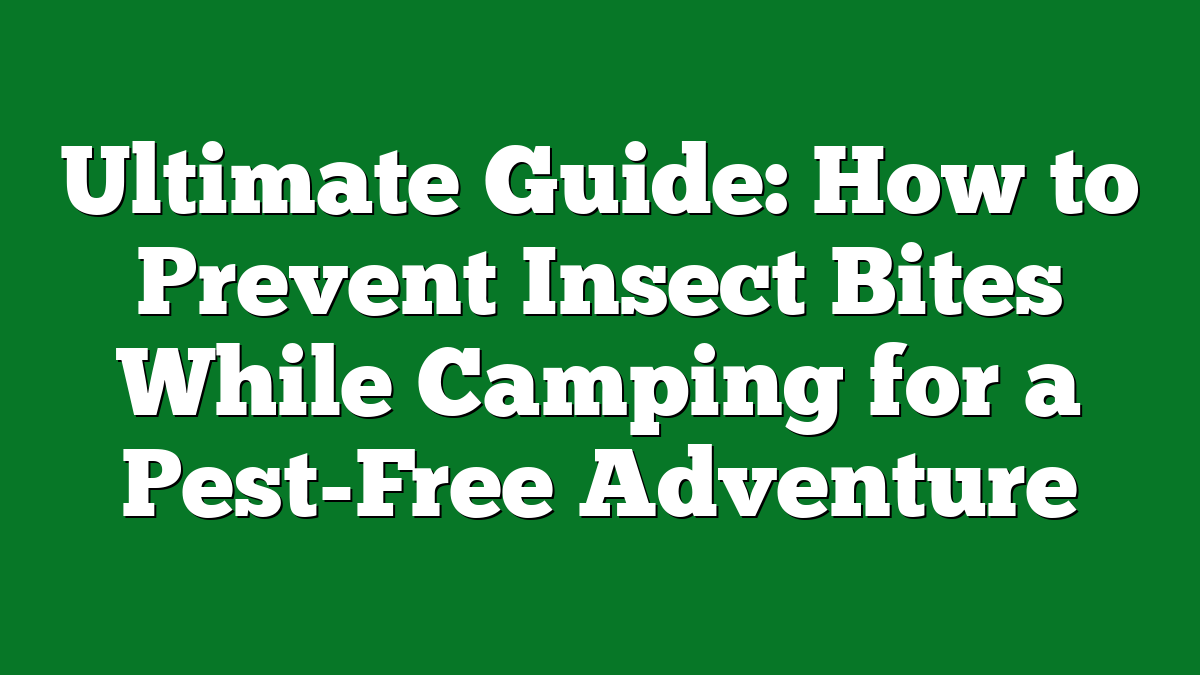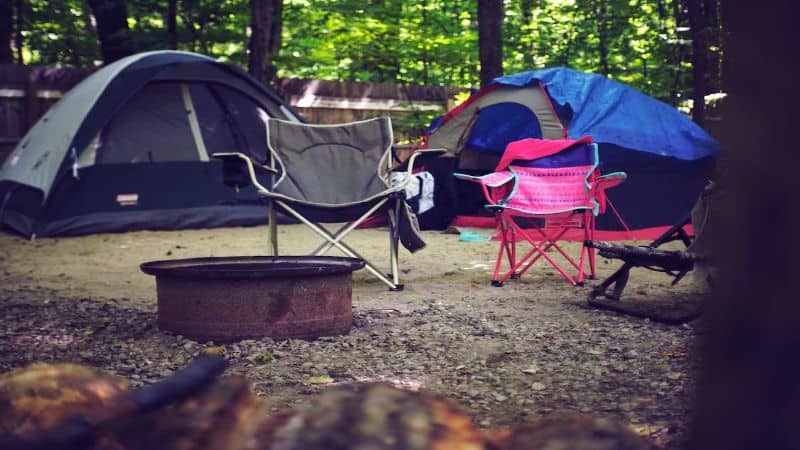There’s nothing quite like the thrill of camping under the stars, but pesky insects can quickly turn a peaceful night into a frustrating experience. I’ve had my fair share of itchy bites that left me wishing I’d taken a few simple precautions. The great outdoors is beautiful, but it often comes with uninvited guests that can ruin your adventure.
Understanding Insect Bites
Camping immerses you in nature, but it also often means encountering insects. Knowing about these pests helps prevent bites and discomfort.
Common Types of Insects Found While Camping
- Mosquitoes: These bloodsuckers thrive in warm, humid conditions. They’re most active during dusk and dawn.
- Ticks: Often hiding in tall grass and bushes, ticks can latch onto clothes or skin. They pose serious diseases like Lyme disease.
- Ants: Some ants are simply annoying, while others, like fire ants, can inflict painful bites.
- Bees and Wasps: These insects protect their nests aggressively. Their stings can cause allergic reactions in some individuals.
- Flies: From house flies to deer flies, many varieties can disrupt your outdoor experience with their incessant buzzing and biting.
Risks Associated with Insect Bites
- Infections: Bites can lead to local infections from scratching.
- Allergic Reactions: Some individuals might experience severe allergies from bee or wasp stings. Symptoms can range from swelling to anaphylaxis.
- Diseases: Insects like mosquitoes and ticks carry diseases, which can result in long-term health issues if contracted.
- Discomfort: Itching and swelling often accompany insect bites, detracting from the overall enjoyment of camping.
- Disruption of Activities: Constantly swatting at insects or dealing with painful bites interferes with activities like hiking or fishing.
Being aware of common insects and their associated risks helps maintain a more pleasant camping experience.
Preparation Before Your Camping Trip
Proper preparation is key for an enjoyable camping experience, especially when it comes to preventing insect bites. Taking steps before heading out can make a significant difference.
Choosing the Right Campsite
Selecting the right campsite influences your exposure to insects. I look for sites away from standing water, as mosquitoes breed in stagnant areas. Avoiding dense brush can reduce encounters with ticks and other pests. Choosing higher ground often provides better airflow, deterring insects as well. Checking the weather forecast helps me anticipate insect activity; warmer, humid conditions usually attract more pests.
Packing Essential Supplies
Packing the right supplies can ward off pesky insects during my trip. I always include insect repellent containing DEET or Picaridin in my gear. Protective clothing, like long sleeves, long pants, and hats, offers additional barriers against bites. Bringing a lightweight bug net can protect me when I’m lounging around the campsite. I never forget to pack first-aid supplies; treating bites promptly can prevent infections. Finally, I consider citronella candles or essential oils, as these can deter insects naturally while adding to the relaxing atmosphere.
Strategies to Prevent Insect Bites
I always prioritize insect bite prevention when camping. A few effective strategies can keep those pesky bugs at bay during my adventures in the great outdoors.
Using Insect Repellents Effectively
I rely on insect repellents to deter bugs. Choose products with DEET, picaridin, or oil of lemon eucalyptus for optimal protection. Apply repellent evenly to exposed skin and clothing, avoiding contact with eyes and mouth. Reapply every few hours, especially after swimming or sweating. Keep in mind that applying repellent before heading into high-risk areas—like woods or near water—helps minimize the risk of bites. Ensure repellent is suitable for everyone in the group, including kids, and check for any specific warnings.
Wearing Appropriate Clothing
I believe in the power of clothing as a defense against insects. Long-sleeved shirts and long pants made from lightweight, breathable fabrics protect my skin from bites. I prefer light-colored clothing, as it attracts fewer insects compared to dark colors. Tucking my pants into my socks and my shirt into my pants creates a barrier against ticks and other crawling insects. Additionally, consider clothing treated with permethrin, which repels ticks and mosquitoes while I venture outdoors. A wide-brimmed hat also guards my face and neck from bug encounters.
Attractiveness of Campsite Areas
Choosing an appealing campsite plays a vital role in preventing insect bites. I’ve noticed that specific areas naturally attract more pests, and it helps to be aware of these factors when setting up camp.
Food and Waste Management
Managing food and waste responsibly keeps insects at bay. I always store food in airtight containers and place them in bear-resistant lockers or hanging them from branches, at least 200 feet from the campsite. Keeping cooking areas clean is essential, so I wipe down surfaces and pack away scraps immediately after meals. I never leave trash bags out, as the smell attracts ants, flies, and other pests. Burning scraps isn’t always advisable; instead, I use resealable bags and pack them out, ensuring no remnants linger around.
Setting Up Your Tent
Selecting the right spot for your tent matters significantly. I choose locations away from dense underbrush, standing water, or heavily shaded areas, as these spots often harbor insects. I look for slightly elevated ground and consider a position with natural barriers like rocks or trees that provide some shield from the wind. Before setting up, I clear the area of debris to minimize hiding spots for bugs. Additionally, I ensure my tent zippers work properly, sealing off openings where insects could sneak in. Remember, a well-placed tent not only enhances comfort but also discourages unwanted guests.
Conclusion
Camping is all about enjoying nature and making memories. By taking a few simple precautions I can keep pesky insects at bay and focus on the beauty around me. From choosing the right campsite to packing the essentials like insect repellent and protective clothing, every little step makes a difference.
I’ve learned that being proactive not only enhances my experience but also keeps the discomfort of bites away. With the right strategies in place I can embrace the great outdoors without the nuisance of bugs. So next time I head out into the wild I’ll be well-prepared to enjoy every moment under the stars. Happy camping!











